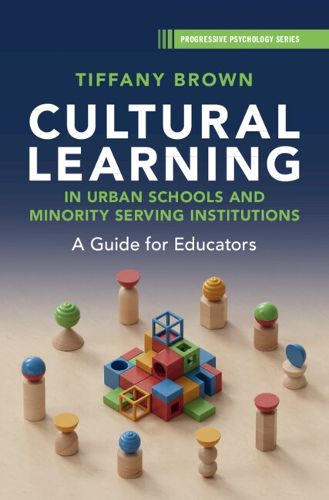Readings Newsletter
Become a Readings Member to make your shopping experience even easier.
Sign in or sign up for free!
You’re not far away from qualifying for FREE standard shipping within Australia
You’ve qualified for FREE standard shipping within Australia
The cart is loading…






This book provides a comprehensive analysis of the social and organizational factors shaping K-16 teachers' cultural learning processes, through both a systematic review of the extant literature on K-12 urban teacher thinking and interviews with instructional staff at a high-performing minority-serving institution (MSI). It highlights common challenges K-16 educators face in navigating cultural differences between themselves and their students. Drawing from cultural psychology, organizational behavior, and organizational psychology, the book offers evidence-based strategies for creating school systems where educators working with students from low-income and other minoritized cultural communities can critically examine and challenge their cultural assumptions to create more inclusive and supportive learning environments for all students, as well as develop and implement more culturally responsive classroom management practices.
$9.00 standard shipping within Australia
FREE standard shipping within Australia for orders over $100.00
Express & International shipping calculated at checkout
This book provides a comprehensive analysis of the social and organizational factors shaping K-16 teachers' cultural learning processes, through both a systematic review of the extant literature on K-12 urban teacher thinking and interviews with instructional staff at a high-performing minority-serving institution (MSI). It highlights common challenges K-16 educators face in navigating cultural differences between themselves and their students. Drawing from cultural psychology, organizational behavior, and organizational psychology, the book offers evidence-based strategies for creating school systems where educators working with students from low-income and other minoritized cultural communities can critically examine and challenge their cultural assumptions to create more inclusive and supportive learning environments for all students, as well as develop and implement more culturally responsive classroom management practices.